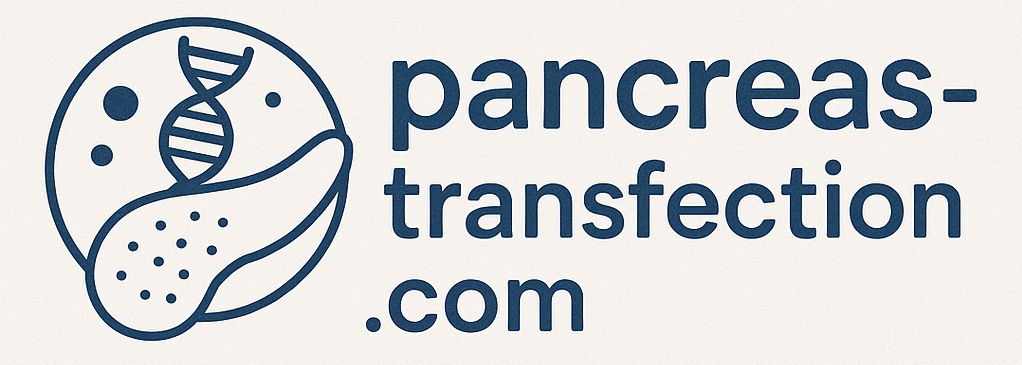What is Transfection?
Transfection is a fundamental molecular biology technique used to introduce nucleic acids — such as DNA or RNA — into eukaryotic cells. This process enables the temporary or stable expression of genes and is vital for studying gene function, protein expression, and cellular behavior. Transfection is commonly achieved through chemical, physical, or viral methods. For biomedical applications, non-viral lipid- or polymer-based transfection reagents are preferred due to their lower immunogenicity and ease of use.
Altogen Biosystems specializes in the development of high-efficiency transfection reagents that are optimized for specific cell lines, including hard-to-transfect cells. These reagents are widely used in academic research, biotechnology development, and preclinical studies.
What is Pancreas Transfection?
Pancreas transfection refers to the targeted delivery of nucleic acids into pancreatic cells, either in vitro (cell culture) or in vivo (within live animal models). The pancreas, a critical organ involved in glucose regulation and digestive enzyme secretion, plays a central role in both metabolic disorders and cancer research. Pancreatic cells, including ductal adenocarcinoma lines such as PANC-1, AsPC-1, and BxPC-3, are notoriously difficult to transfect due to their dense cytoskeletal structure and low division rate.
Altogen’s pancreas-specific transfection kits provide a highly effective solution for this challenge. These kits include reagents formulated for both in vitro transfection of pancreatic cancer cell lines and in vivo delivery into pancreatic tissue. Optimized for high gene expression and minimal cytotoxicity, these kits are used extensively in translational research focused on pancreatic cancer, gene therapy, and drug delivery studies.
Applications of Pancreas Transfection
Pancreas transfection technologies have widespread applications in biomedical science:
- Cancer Research: Enables overexpression or knockdown of oncogenes and tumor suppressors in pancreatic cancer models (e.g., PANC-1, MIAPaCa-2, AsPC-1).
- Gene Therapy: Facilitates preclinical development of genetic treatments for conditions such as pancreatic cancer, pancreatitis, and Type 1 diabetes.
- Drug Development: Used in target validation and efficacy screening of novel therapeutics using genetically modified pancreatic cell models.
- CRISPR/Cas9 Delivery: Transfection methods are also crucial for delivering CRISPR/Cas9 components to perform genome editing in pancreatic cells.
Explore Our Solutions

Altogen Biosystems — Transfection Reagents & Research Products
Altogen Biosystems is a biotech manufacturer specializing in the development of cell line-specific and tissue-targeted transfection kits. Designed to optimize gene expression and RNAi experiments, our pancreatic product line includes:
In Vitro Transfection Kits for pancreatic cell lines:
In Vivo Transfection Kits for pancreatic cell lines:
- Pancreas In Vivo Transfection Kit for efficient RNAi delivery in animal models
Altogen’s reagents are used globally by pharmaceutical companies, CROs, and academic institutions for high-efficiency gene delivery and functional studies.

Altogen Labs — CRO Services for Pancreatic Cancer Research
Altogen Labs is a GLP-compliant contract research organization (CRO) offering preclinical in vivo services with a focus on pancreatic cancer xenograft models.
Available xenograft models include:
These services support pharmaceutical R&D pipelines, providing efficacy testing, tumor inhibition data, and drug delivery validation in animal models.
Why Altogen?
- 120+ validated transfection kits for difficult-to-transfect cell lines
- Over 15 years of biotech and CRO expertise
- In vivo RNAi delivery and GLP-compliant xenograft studies
- Proven track record in oncology research and drug testing
- Rapid turnaround and custom study options
Whether you need reagents or full-service lab studies, Altogen offers a complete solution for translational and preclinical research.
